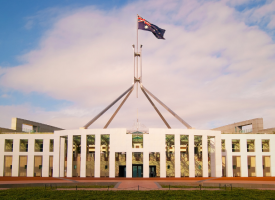Transcript - Dr Gannon - SKY - Budget
Transcript: AMA President, Dr Michael Gannon, SKY News, with Ashleigh Gillon,
Wednesday 9 May 2018
Subject: Medicare levy, Budget
ASHLEIGH GILLON: We're returning now to Budget analysis. Joining us live from Canberra is Michael Gannon, he's the President of the Australian Medical Association.
Dr Gannon, appreciate your time. The Medicare levy for GP visits will rise after being frozen for four years. Will that actually mean anything for patients around the country?
MICHAEL GANNON: Look, they probably won't notice it a great deal. That was announced in last year's Budget, so we're only about six weeks away from re-indexation of the rebates patients get when they see a GP or another specialist. But of course, with the accumulated freeze going back four or five, six years, that has placed significant pressure on patient rebates and it's increased out of pocket costs. Doctors running private practices have either got to absorb those costs or they've got to increase costs to patients. So welcome news from last year's Budget that will come into operation in a few weeks' time.
ASHLEIGH GILLON: What were the other measures to receive a big tick from you last night? What's the best thing about the Budget from a health perspective then?
MICHAEL GANNON: Well, it's a safe and steady Budget with a number of small areas that leaves the main reform still to go. But we've seen significant investment in medical research. We've seen the government continue to grow the amount it puts into our public hospitals. Now, most of that growth is in activity, it doesn't reflect the fact that by their own measures, our public hospitals are failing in many ways. We welcome the investments in aged care, we welcome the investments in mental health and specifically suicide prevention. There's some good news in Indigenous health. But some of the main bodies of work, they still need to be addressed.
ASHLEIGH GILLON: So, looking at that in terms of lost opportunities, what were you most disappointed about last night?
MICHAEL GANNON: Well, it's not necessarily a Budget process, but the Government's private health insurance reforms, they will play out over the next 12 months. Of course, the public hospital agreements with the States and Territories need to be ironed out and finalised. We've got Victoria and Queensland holding out. Those States that signed at the start, like New South Wales and Western Australia have been promised that if anything else is required to bring those other jurisdictions across the line that they will enjoy extra funding. We need to see the States and Territories themselves respond, because they have their share of public hospital funding to address. And of course, there's an enormous amount of work still to come out of the MBS reviews. Doctors have worked with Government to identify savings, new item numbers, but we need to make sure that those items developed with clinicians are funded. That work will need to be done in coming months.
ASHLEIGH GILLON: You're an obstetrician. Last night, we learned every newborn will soon get a digital baby book which acts as a lifelong e-health record. Does that ring any privacy alarm bells with you? Do you know if there's an opt-out option for parents who don't want their baby's records kept digitally? We know that in this age of the threat of cyber-hacking, there are real concerns about these sort of digital e-health records in the community.
MICHAEL GANNON: Well, it's absolutely essential that the privacy concerns the people have on behalf of themselves, their children, their elderly, loved ones, are addressed. We know the stories about hacking, et cetera. An old aphorism is that there's two kinds of databases; those that have been hacked and those who might be hacked. So, look, I understand people's concerns about that.
But in terms of the safety advantages that electronic health records bring, we have a fragmented health system and the idea that someone at the start of their life might have every single health intervention, whether it be a vaccination, an x-ray, or as we age, things like protheses, et cetera, allergies, serious allergies like anaphylaxis, all recorded in a document which can be visualised wherever you're being looked after, in a public hospital, in a private hospital, that's good news. This is being done in other parts of the world, this is another way of adding to the electronic health record which is the future for the Australian health care system.
ASHLEIGH GILLON: Dr Michael Gannon, appreciate your time with us this morning. Thank you.
MICHAEL GANNON: Thank you Ashleigh.
9 May 2018
CONTACT: John Flannery 02 6270 5477 / 0419 494 761
Maria Hawthorne 02 6270 5478 / 0427 209 753
Follow the AMA Media on Twitter: http://twitter.com/ama_media
Follow the AMA President on Twitter: http://twitter.com/amapresident
Follow Australian Medicine on Twitter: https://twitter.com/amaausmed
Like the AMA on Facebook https://www.facebook.com/AustralianMedicalAssociation



